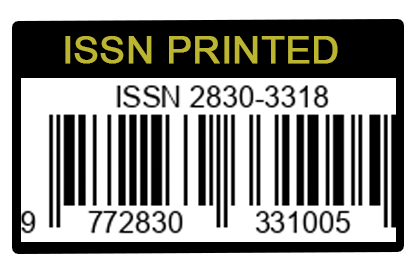Inovasi Metode Diklat yang Efektif dan Efisien di Pondok Pesantren Darussalam Banyuwang
DOI:
https://doi.org/10.53398/ja.v4i1.651Keywords:
Islamic Boarding Schools, Training Innovation, Active Learning, 21st Century Skills, Integration of Modern TraditionsAbstract
Pesantren, as the oldest Islamic educational institution in Indonesia, faces the challenge of adaptation in the era of globalization and technology. Traditional passive training methods are considered less relevant to produce graduates with 21st century skills. This research aims to identify and formulate an innovative training model that integrates the value of pesantren with modern pedagogy, overcoming competency gaps, and utilizing technology. Previous studies have been minimal in exploring innovations in pesantren-specific training methods, including the effectiveness of active learning and 21st century skill development. This study uses a qualitative approach with a case study at the Darussalam Islamic Boarding School, Banyuwangi. Data collection was carried out through participatory observation, in-depth interviews with leaders and students, and documentation. Thematic data analysis was carried out with the help of NVivo, and data validation using triangulation. The results show the transformation of the training method through the integration of classical book study with thematic discussions, problem-based learning, the use of digital media, and social projects. Practice-based methods are very effective in increasing student involvement. Efficiency is achieved through the use of technology and the integration of activities. This innovation has been institutionalized through strategic documentation, showing that the Darussalam Islamic Boarding School is proactive in aligning tradition with modern needs, producing relevant and adaptive graduates
References
Arif, M., Kartiko, A., Rusydi, I., Zamroni, M. A., & Hasan, M. S. (2024). The Existence of Madrasah Ibtidaiyah Based on Pesantren: Challenges and Opportunities in The Digital Era. Munaddhomah: Jurnal Manajemen Pendidikan Islam, 5(4), 367–382. https://doi.org/https://doi.org/10.31538/munaddhomah.v5i4.1401
Arifin, S., Chotib, M., Rahayu, N. W. I., Hosaini, H., & Samsudi, W. (2024). Kiai’s Transformative Leadership in Developing an Organizational Culture of Islamic Boarding Schools: Multicase Study. AL-ISHLAH: Jurnal Pendidikan, 16(2), 2608–2620. https://doi.org/DOI: https://doi.org/10.35445/alishlah.v16i2.5325
Assegaf, A. R., Zainiyah, H. S., & Fahmi, M. (2022). Curriculum innovation for the internationalization of Islamic education study program at higher education institutions in Surabaya, Indonesia. Millah: Journal of Religious Studies, 671–706. https://doi.org/https://doi.org/10.20885/millah.vol21.iss3.art3
Baig, M. I., & Yadegaridehkordi, E. (2023). Flipped classroom in higher education: a systematic literature review and research challenges. International Journal of Educational Technology in Higher Education, 20(1), 61. https://doi.org/https://doi.org/10.1186/s41239-023-00430-5
Bakar, M. A., Umroh, K. A., & Hameed, F. (2023). Improving quality Islamic education for today’s generation. At-Tadzkir: Islamic Education Journal, 2(2), 118–128. https://doi.org/https://doi.org/10.59373/attadzkir.v2i2.42
Desrani, A., Ritonga, A. W., & Lubis, M. (2024). Learning by Doing: A Teaching Paradigm for Active Learning in Islamic High School. Journal of Education and E-Learning Research, 10(4), 793–799.
Dumiyati, D., Musnandar, A., Julhadi, J., Na’im, Z., & Muta’allim, M. (2023). The development of Islamic education curriculum on building religious moderation at Manbaul Ulum Islamic boarding school. AL-WIJDÃN Journal of Islamic Education Studies, 8(3), 359–381. https://doi.org/https://doi.org/10.58788/alwijdn.v8i3.2607
Febrianti, A. N. (2024). Analisis Strategi Promosi Dalam Mempertahankan Loyalitas Pelanggan Pada UMKM Keripik Tempe Bu Damilah Purwokerto Kidul. Kabupaten Banyumas, 4–6.
Hilda, L., & Lubis, R. (2021). Apmol: Media Teknologi Geometri Molekul Berbasis Augmented Reality Dan Jmol. Samudra Biru.
Humaidi, A. (2021). Pesantren business entity development as an education basis for the autonomy of santri, pesantren, and the community: A case study at Pesantren Sidogiri Pasuruan. Didaktika Religia, 9(1), 121–144. https://doi.org/https://doi.org/10.30762/didaktika.v9i1.1937
Ijudin, I., Wakila, Y. F., & Anton, A. (2022). Implementing Active Learning to Increase Student’s Learning Interest in Islamic Religious Education. Jurnal Pendidikan Islam, 8(1), 51–62. https://doi.org/http://journal.uinsgd.ac.id/index.php/jpi
Iksan, M., Husnaini, H., & Masruddin, M. (2022). Implementation of weekly English Program with fun learning method for Pesantren students. Ethical Lingua: Journal of Language Teaching and Literature, 9(2), 872–879. https://doi.org/https://doi.org/10.30605/25409190.479
Javaid, M., Haleem, A., Singh, R. P., Suman, R., & Rab, S. (2022). Significance of machine learning in healthcare: Features, pillars and applications. International Journal of Intelligent Networks, 3, 58–73. https://doi.org/https://doi.org/10.1016/j.ijin.2022.05.002
Khoiri, A., Sunarno, W., Sajidan, S., & Sukarmin, S. (2021). Analysing students’ environmental awareness profile using strategic environmental assessment. F1000Research, 10, 305. https://doi.org/https://doi.org/10.12688/f1000research.51523.2
Listiana, H., & Muhlis, A. (2023). The Development Model of the Digital-Based Madrasah Diniyah at Islamic Boarding School Padepokan Kyai Mudrikah Kembang Kuning. TADRIS: Jurnal Pendidikan Islam, 18(2), 117–134. https://doi.org/https://doi.org/10.19105/tjpi.v18i2.10192
Moulaei, K., Sheikhtaheri, A., Fatehi, F., Shanbehzadeh, M., & Bahaadinbeigy, K. (2023). Patients’ perspectives and preferences toward telemedicine versus in-person visits: a mixed-methods study on 1226 patients. BMC Medical Informatics and Decision Making, 23(1), 261. https://doi.org/https://doi.org/10.1186/s12911-023-02348-4
Nikmatullah, C., Wahyudin, W., Tarihoran, N., & Fauzi, A. (2023). Digital Pesantren: Revitalization of the Islamic Education System in the Disruptive Era. Al-Izzah: Jurnal Hasil-Hasil Penelitian, 1–14. https://doi.org/https://dx.doi.org/10.31332/ai.v0i0.5880
Nursetialloh, E. (2023). Kiai’s situational and transformative leadership: maintaining the quality of pesantren graduates in the disruption era. Edukasia Islamika, 8(2), 252–270. https://doi.org/https://doi.org/10.28918/jei.v8i2.2276
Qomar, M., & Fitri, A. Z. (2024). Innovative Learning Strategies for Islamic Religious Education Based on Merdeka Belajar Curriculum in Vocational High Schools. Al-Hayat: Journal of Islamic Education, 8(3), 966–981. https://doi.org/https://doi.org/10.35723/ajie.v8i3.587
Sultani, D. I., Silalahi, C. A. P., & Ali, R. (2021). The learning strategy of islamic education at primary school in implantation of Islamic thought values. Jurnal Ilmiah Sekolah Dasar, 5(1), 1–7. https://doi.org/https://doi.org/10.23887/jisd.v5i1.28582
Suyatno, S., Wantini, W., Sukiman, S., & Rachmawati, Y. (2022). Progressive islamic education: Bridging the gap of islam, indonesianness, and modernity. The Qualitative Report, 27(1), 226–242. https://doi.org/https://doi.org/ 10.46743/2160-3715/2022.4782
Tran, K., & Nguyen, T. (2021). Preliminary research on the social attitudes toward AI’s involvement in Christian education in Vietnam: Promoting AI technology for religious education. Religions, 12(3), 208. https://doi.org/https://doi.org/10.3390/rel12030208
Tubagus, M., Haerudin, H., Fathurohman, A., Adiyono, A., & Aslan, A. (2023). The impact of technology on islamic pesantren education and the learning outcomes of santri: new trends and possibilities. Indonesian Journal of Education (INJOE), 3(3), 443–450.
Wibowo, N. A., Sumarmi, S., Utaya, S., Bachri, S., & Kodama, Y. (2023). Students’ environmental care attitude: a study at adiwiyata public high school based on the New Ecological Paradigm (NEP). Sustainability, 15(11), 8651. https://doi.org/https://doi.org/10.3390/su15118651
Zaid, B., Fedtke, J., Shin, D. D., El Kadoussi, A., & Ibahrine, M. (2022). Digital Islam and Muslim millennials: How social media influencers reimagine religious authority and Islamic practices. Religions, 13(4), 335. https://doi.org/https://doi.org/10.3390/rel13040335
Downloads
Published
How to Cite
Issue
Section
License
Copyright (c) 2025 Jurnal Al-Kifayah: Ilmu Tarbiyah dan Keguruan

This work is licensed under a Creative Commons Attribution-NonCommercial-ShareAlike 4.0 International License.



.png)






